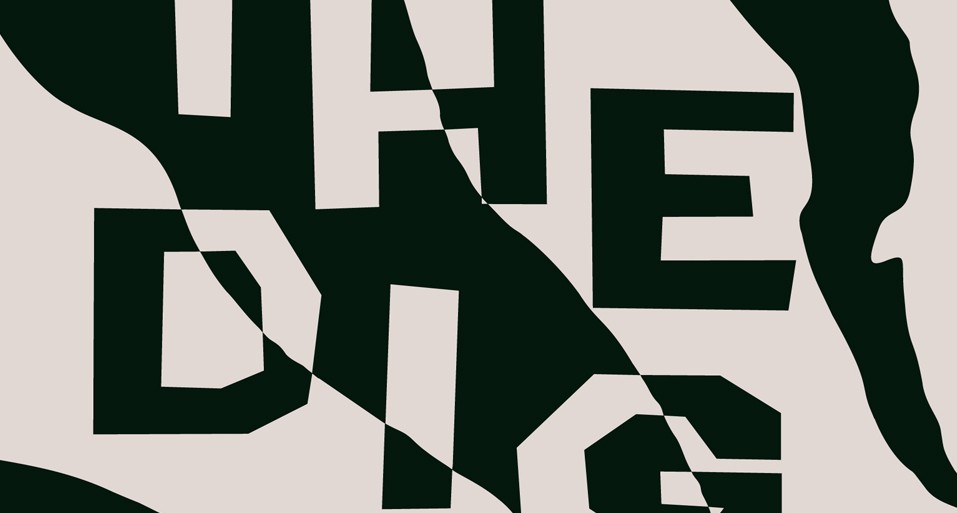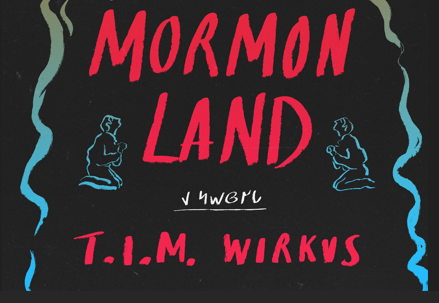interviews
INTERVIEW: Mark Doten, author of The Infernal

Last month, Graywolf Press released Mark Doten’s debut novel, The Infernal. A critic for the New York Times Book Review called it “the most audaciously imaginative political novel I’ve ever read.” Our own reviewer, the writer Joseph Riipi, had this to say: “perhaps the only thing I understand for sure about The Infernal: it is a success, and an utter delight, and these qualities come from my not being able to understand it entirely.” I sat down with Doten, at the Center for Fiction in midtown Manhattan, hoping for some answers.
Dwyer Murphy: I want to start with a challenge: can you describe the plot of this book in, say, a hundred words? Usually I’d put that sort of thing in an introductory paragraph, but honestly I’m not sure I can do it for The Infernal.
Mark Doten: Are spoilers okay?
Murphy: You’re the author.
Doten: I think we should have some spoilers, because there’s so much information in this book, and so many people are describing it in different ways. A good summary with some spoilers could be useful.
Murphy: Okay, you’ve got a hundred words. Have at it.
Doten: So we have Jimmy Wales — who, because of various potions and chemicals administered by Vannevar Bush, has the body of an eleven year-old — interrogating a mysterious burnt boy. The burnt boy has inside him the voices of people who have been uploaded to the cloud, voices that exist after the demise of humanity. And the spoiler is [ed. note — look away if you don’t want to know], the burnt boy Jimmy Wales is interrogating turns out to be Jimmy Wales. It’s a looping time thing. Jimmy lives a thousand years after the action of the book, eventually traveling through a landscape where he encounters the Leopard, Lion and Wolf from Canto 1 of Inferno. Then he’s thrown off a mountain and into the cloud. He hears all these voices as he’s falling, then he’s sent back in time by the cloud itself, which wants him to share the stories as a sort of warning, in a bid to alter the hellish timeline they’re locked in. He’s badly disfigured by the experience of the cloud and the time travel, to the point where he’s unrecognizable, and now, back in our time, he’s interrogated by Jimmy Wales — by himself. And it all starts again. That is more than a hundred words.
Murphy: It is. Well over. That’s a failed challenge, I’m afraid. But well summarized. Can we talk about the book’s origins? It has the feeling of something that’s been stewing for a long time.
Doten: Well, it started in grad school. I was writing these formally strange stories about young gay guys doing various things. Some stories were very violent, others were relationship stories. Around that time, I started working at a literary agency, reading submissions, and I just had a sense that no one would have any interest in publishing the stories I was working on. I also felt, personally, that I wasn’t pushing things as far as I could or writing about the things I was most interested in.
I’d been a big political guy for a while. I volunteered for Howard Dean in North Dakota and Iowa and Minnesota. Read a ton of blogs. Worked at the Huffington Post when it launched. During this period, I was just obsessed with politics. So I thought, you know what, I should be writing with political voices. It started with a notion that I would do an update of Dante’s Inferno, with a bunch of Bush Administration era people. I thought that would be interesting, that people might want to publish and read it, and it would also be within the world of my interest and would allow me to do anything I wanted with the prose.
Murphy: Was there a seminal moment, something during the Bush Administration, that pissed you off and made you want to write? There’s a real anger in this project, something that seems to be fueling the story, the prose.
Doten: Well, you know, the Iraq war pissed me off. I remember reading Sebald’s Natural History of Destruction the night that we started attacking Iraq, the first night of the Shock and Awe campaign, and feeling the wild incommensurability between being a single human holding a small book in a coffee shop in St. Paul and the vast, relentless machinery of war that America had just put into motion thousands of miles away. People dying on the other side of the globe at my government’s direction, as I sat there in a comfortable chair, reading and drinking coffee. But I’m not sure there was any single event. It was just the slow burn of how fucking crazy this all was, the slow burn of the Bush Administration doing whatever they wanted. I mean, everyone who was smart was against the war. The Administration was for it and they got cover from certain dum-dums or crooks or deluded people in the media — Judith Miller, Andrew Sullivan, Thomas Friedman and others. But basically the world was against the war and there were these huge protests, but the war just kept rolling on and on. There was no stopping it. The protests weren’t even getting press coverage, not like these tiny Tea Party protests would get years later. It was just so frustrating. This book came from a place of helplessness — the impotent rage of an observer who can’t change anything.
Murphy: And you wanted to say something about, or to, certain people? You’re using real names, real figures from the political and tech worlds.
Doten: Yeah, I did. I don’t think Roger Ailes or L. Paul Bremmer or Condoleezza Rice is going to give a shit about what I’m writing. But I wanted to use their names. I mean, what would the book have looked like otherwise, if I’d used fake names and we all knew who these people really were?
Murphy: Besides anger, there’s also lot of humor in this book. It sort of sneaks up on you. I was about fifty pages in, still wondering how I was supposed to react, whether this was meant to be funny.
Doten: During the period I was writing this, South Park and The Daily Show were the great works of political satire. What they did was very bold. I mean, South Park had the most incredible 9–11 Truther episode where we find out at the end that the Truthers are right, and we go into the White House and Bush and Cheney and Rice and Rumsfeld are all there, confessing to planning 9–11. That humor, to me, is just very funny. They did another episode that was a pastiche of Warner Brother, Bugs Bunny-style cartoons, where the boys were fighting bin Laden. And again, it’s so gutsy. That was very much the feel I wanted for The Infernal.
That wild craziness — the one that TV shows and cartoons do so well — wasn’t being represented in fiction. I wanted to push into that comic realm. I love movies, but in the early years of the writing, the guy I was dating then didn’t. Didn’t like to watch movies at all unless they were bad movies that could be watched ironically. And we didn’t have a ton of money, and we spent it going out dancing or to the gay bar once a week, and then a lot of the rest of our nights we’d be watching something on a screen. That turned out to be a huge gift. The main overlap in our taste was animated shows — I mean, I didn’t know anything about anime or Adult Swim or anything at first, but he knew some, and then we sort of explored those worlds together. So I got a big education on these amazing anime shows, FLCL, Lain, Boogiepop. And US stuff: South Park, Samurai Jack, The Boondocks, Home Movies, Aqua Teen. And I was just in love with the wild inventiveness of these shows — the way they seemed to be able to move in any direction at any moment. It made a lot of fiction start to feel straight-jacketed to me. The best animated shows have a controlling voice and a through-line, but then they also have this completely madcap sensibility. I mean, a lot of The Infernal is influenced by Kafka and Beckett and Thomas Bernhard and Dostoyevsky, but then I wanted the cartoon craziness, too. I wanted to be able to make leaps in style and story that were more like what I prized in animated stuff than what you typically see in fiction. And I should add that I see a real kinship between Kafka and Bernhard and so on — writers who work in what I sometimes think of as the “mad monologue” tradition — and cartoons. A narrator who’s caught in his or her head, who’s constructing a sort of logical-but-deranged world, can make very sudden, very thrilling moves. Strindberg and Wallace Shawn are two more examples — their plays matter a lot to The Infernal, and can be cartoonish in the best way.
Murphy: So we’re somewhere near the crossroads of Notes from Underground, Cartoon Network, and impotent rage?
Doten: And newspaper cartoons, the funny pages. One of the threads, the Afghan kids — Hakim and Rashid — that’s very much in the world of Krazy Kat. There was a fascinating thing that happened in early American newspaper cartoons. There was a huge amount of dialect stuff, where you had all these voices. Krazy Kat is probably the great work that should endure from that time. We have some interesting stuff now — I mean, we have Marmaduke — but we don’t have the kind of cartoons they had then. For me, just sitting down and reading a few years worth of Krazy Kat, which I think Fantagraphics is publishing, is just wonderful.
Murphy: And to capture all these voices, you’re using this cloud conceit: voices have been uploaded, humans are extinct, the cloud is spitting voices back out through a mysterious burnt boy. How did you hit on that voice as the one you needed to tell your story?
Doten: Like I said, I wanted the ability to move in as many possible directions as I could, within the limits of my own talent, and to have it work within the structure of a large book. And also, part of it was just a ‘fuck you’ sentiment. I wanted to see how many voices I could possibly fit in there, how many different ways I could twist or deform these characters — that seemed appropriate to our media-saturated, voice-saturated, constructed, “truthy” world, with all its lies and distortions and clamorings-for-attention. The cloud voice itself — the one that explains things — is sort of a voice like something developed by Dennis Cooper, combined with Final Fantasy III and Super Nintendo era role-playing games, to take just one example. That youthful, affectless, Southern California stoner Cooper voice blended well with the more melodramatic, but somehow still flat, voice of an SNES RPG. Cooper himself does something like that in a section of his novel God Jr., where we’re inside an, I think, N64-era 3D platformer. It’s one of my favorite passages in recent literature — the most gorgeous sentences imaginable, and you’re inside a video game! Dennis is someone who has had a big influence on me in terms of how to think about fiction in terms of large, conceptual frameworks, and also how much you can get away with not telling the reader, so I liked the idea of including that nod to him. I could go through and sort of break down the origins of each individual voice the same way — as, ya know, Wallace Shawn’s The Fever plus a horror image from a book I read as a kid, plus, like, a story cribbed from the Snorks or some old board game, but during revisions the voices are pulled away from those initial inspirations, and anyhow it kind of spoils things to go too far down the explainy path.
Murphy: I don’t think I could’ve picked those references out on my own. A book like this, it’s good to have a guided tour.
Doten: These references and textures — the ones that probably no one will ever recognize — they were a big part of the fun of writing this book. The fun was really important.









